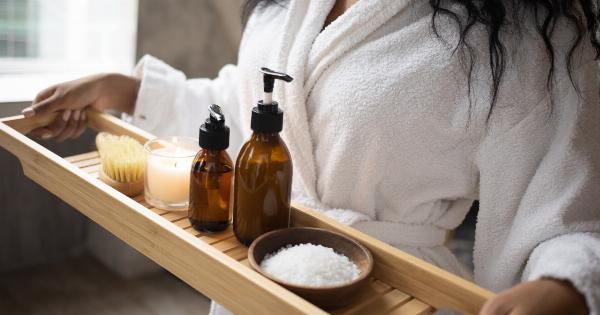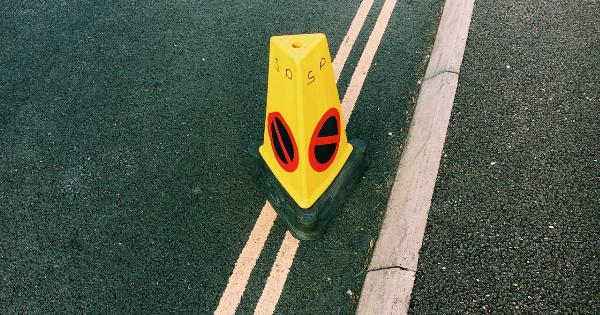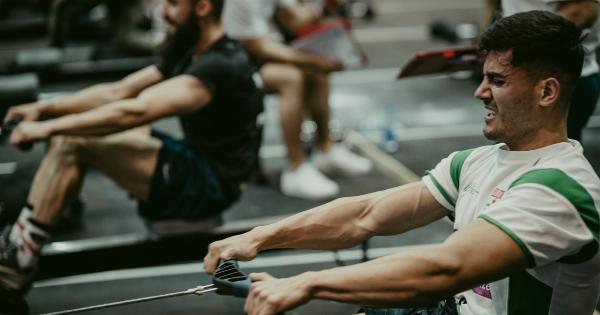Cramps can be a irritating and painful experience. They often occur suddenly without any warning and can affect various parts of our body, including our legs, feet, arms, and even the stomach.
Cramps are involuntary contractions of our muscles that can range from mild to severe. The causes of cramps can vary, including dehydration, electrolyte imbalances, muscle fatigue, or even certain medical conditions.
If you’re someone who frequently experiences cramps, fret not! In this article, we will discuss some remedies that may help alleviate your cramping woes.
1. Stretching
Stretching is a simple yet effective way to relieve muscle cramps. When a cramp strikes, gently stretching the affected muscle can help relax it and relieve the pain. For leg cramps, try sitting down and extending your leg in front.
Then, flex your foot and gently pull your toes towards you. Hold this position for about 30 seconds.
2. Stay Hydrated
Dehydration is a common cause of muscle cramps, especially during exercise or hot weather. Ensuring you drink enough water throughout the day can help prevent cramps.
It is recommended to consume at least 8 cups (64 ounces) of water daily to stay properly hydrated. If you’re engaging in intense physical activity, consider consuming electrolyte-rich beverages to replenish the minerals lost through sweat.
3. Apply Heat or Cold
Applying heat or cold to the affected area can provide relief from cramps. For muscle cramps, using a heating pad or warm towel can help relax the muscle and reduce pain.
On the other hand, cold therapy can be effective for reducing inflammation or swelling associated with cramps. Consider applying an ice pack wrapped in a thin cloth for around 15 minutes at a time.
4. Massage the Cramped Muscle
Massaging the cramped muscle can help relieve the tension and promote relaxation. Apply gentle pressure to the affected area and use circular motions to massage the muscle. You can also try kneading or rolling the muscle with your hands or a massage tool.
This technique can increase blood flow to the area and help alleviate cramps.
5. Increase Magnesium Intake
Magnesium deficiency is linked to an increased risk of muscle cramps. Adding magnesium-rich foods to your diet or considering magnesium supplements may be beneficial.
Good sources of magnesium include dark leafy greens, nuts, seeds, legumes, and whole grains. However, it’s important to consult with a healthcare professional before starting any new supplements.
6. Take a Warm Bath
A soothing warm bath can help relax tense muscles and provide relief from cramps. Fill your bathtub with comfortably warm water and soak the affected muscles for around 20 minutes.
You may also enhance your bath by adding Epsom salts, which contain magnesium that can be absorbed through the skin.
7. Use Over-the-Counter Pain Relievers
If the cramps persist or become too painful to bear, you may consider using over-the-counter pain relievers.
Nonsteroidal anti-inflammatory drugs (NSAIDs) like ibuprofen or naproxen sodium can help reduce pain and inflammation associated with muscle cramps. However, it’s important to follow the recommended dosage and consult with a healthcare professional if you have any underlying health conditions or are taking other medications.
8. Stay Active and Stretch Regularly
Regular exercise and stretching can help prevent muscle cramps by improving muscle flexibility and strength. Incorporating activities like walking, jogging, swimming, or yoga into your routine can promote overall muscle health.
Remember to warm up before exercising and cool down afterward, and be sure to stretch your muscles properly before and after physical activity.
9. Keep a Balanced Diet
A balanced diet that includes a variety of nutrients is essential for overall muscle health. Ensure you’re getting enough potassium, calcium, sodium, and other essential minerals through your diet.
Include foods like bananas, oranges, leafy greens, dairy products, and lean proteins in your meals to support muscle function and prevent deficiencies that could contribute to cramping.
10. Consult a Healthcare Professional
If you experience frequent or severe muscle cramps that don’t improve with home remedies, it’s important to consult a healthcare professional.
They can help identify any underlying medical conditions or lifestyle factors that may be contributing to your cramps. They may also provide specific treatment options or suggest further tests if necessary.




























